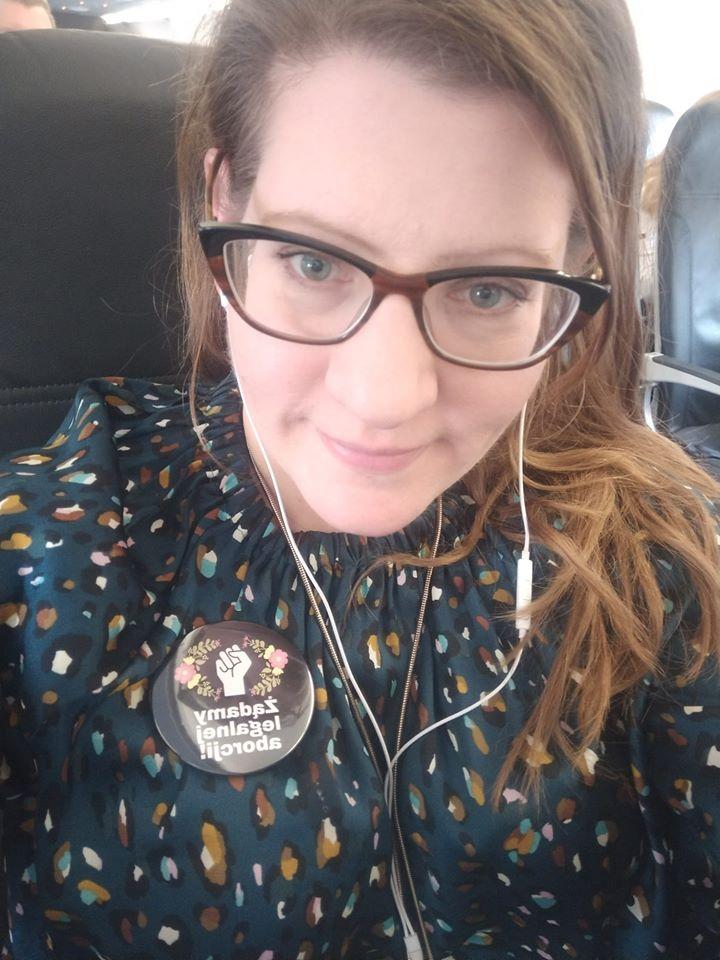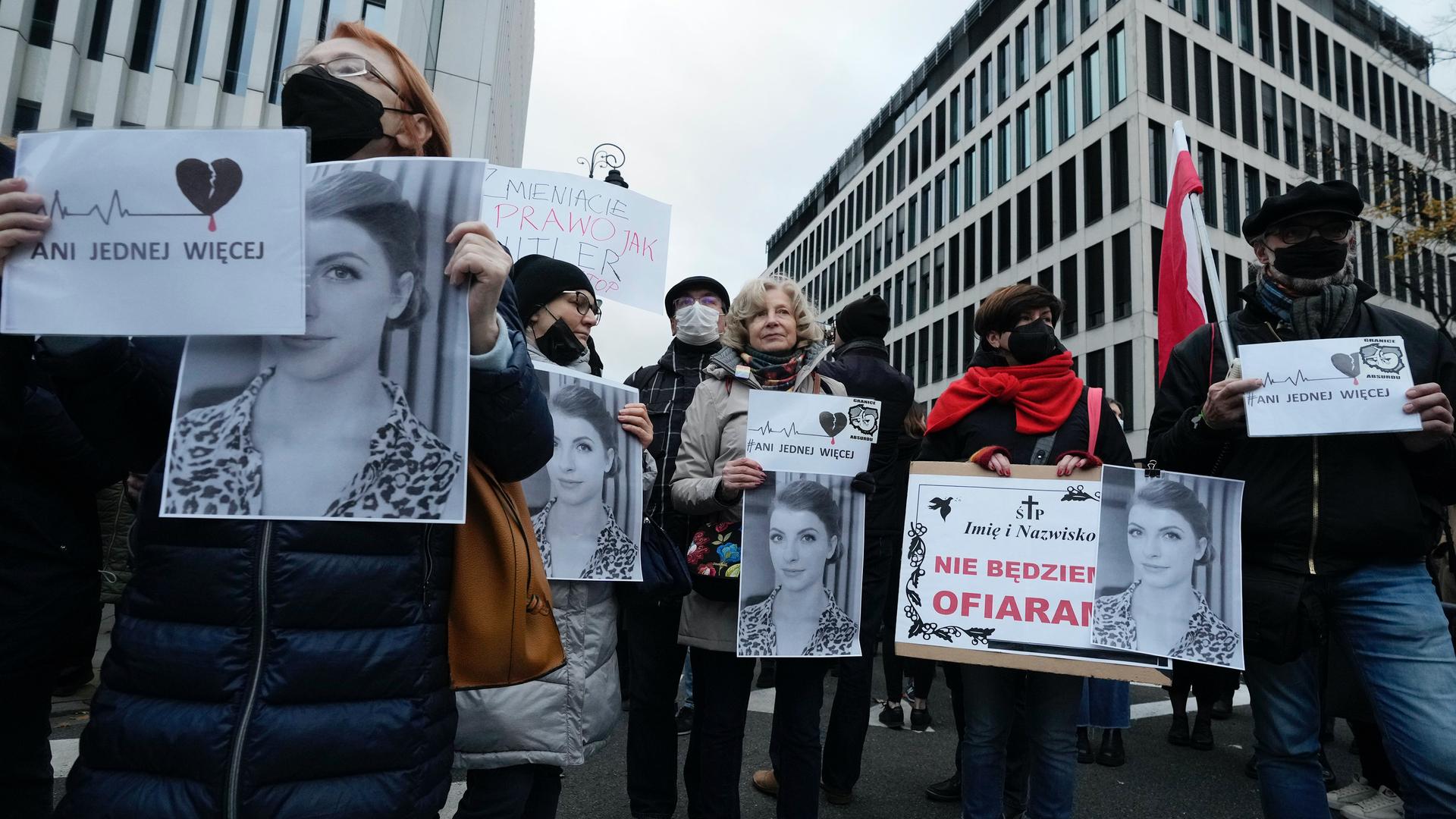Justyna Wydrzyńska said she knew that she was taking a big risk when she put a couple of abortion pills into an envelope and mailed them from her home in Przasnysz, Poland, to a woman in another part of the country.
Wydrzyńska, a co-founder of the activist group, Abortion Dream Team, was put in touch with the woman, known only as Anna in the Polish media, after she had contacted an abortion support helpline in February 2020.
Anna had planned to go to Germany for an abortion, but her husband threatened to turn her in to the police, Wydrzyńska said. Anna was scared and time was running short.
“The domestic violence [Anna] experienced was really awful. We have to help other people in circumstances like this and not leave them alone.”
“The domestic violence [Anna] experienced was really awful,” Wydrzyńska said. “We have to help other people in circumstances like this and not leave them alone.”
Related: Poland prepares to accept thousands of refugees from Ukraine
Wydrzyńska once got an abortion when she was in an abusive relationship, she said. So, she was moved to do whatever she could to help Anna.
Giving out information on abortion is legal in Poland, but providing pills to end a pregnancy is not.
Last year, Wydrzyńska was charged with illegally aiding an abortion. The trial opens in Warsaw on April 8, and Wydrzyńska faces up to three years in prison. Experts say that this is the first time an abortion-rights activist is going on trial for helping a woman access an abortion in Europe.
Poland has one of the strictest abortion laws in Europe. Abortions in the country have long been restricted, but in January 2021, the Polish government introduced new legislation allowing abortion only in the most exceptional of circumstances, such as cases of rape or incest, or if the mother’s life is at risk.
The new law saw thousands take to the streets in protest and calls to abortion support groups in Poland soared.
Mara Clarke, founder of the Abortion Support Network, said that she worries that the Polish authorities will want to make an example of Wydrzyńska’s case as a deterrent to other abortion-rights groups.
“The government is showing us that if you help somebody, if you help your sister or your mother, your partner or your bestie that they’re going to come for you,” Clarke said.
Clarke said that if the maximum penalty comes out of the trial, there will be unprecedented street protests in Poland.

Related: A ‘deepening chill’ among historians over Holocaust revisionism in Poland
“I think the protests they saw after the Constitutional Tribunal ruling [imposing a near-total ban on abortion] will look like child’s play in comparison,” she said. “We will fight for [Wydrzyńska]. They better come for us all, and there’s more of us than they think.”
‘I’m not afraid of our government’
Wydrzyńska said that the Abortion Dream Team has always been careful to operate within the law, guiding women to other EU countries where they can access abortion services legally.
But that was out of reach for Anna.
In fact, Anna never received the abortion pills because her husband intercepted Wydrzyńska’s package and contacted the police, according to Wydrzyńska. Anna miscarried a short time later, the activist said.
Months later, police arrived at Wydrzyńska’s home. They searched her house and took a couple of abortion pills Wydrzyńska had kept for her own personal use. They also removed her cellphone and computer and her childrens’ computers, she said.
Related: A new monument in Poland sparks concern about Holocaust revisionism
Wydrzyńska said that she’s concerned that the judge in her case may be influenced by the ruling Law and Justice Party (PIS), which is seen as behind the Constitutional Tribunal’s decision to further restrict abortion access.
“This is a Polish court, judges do what they want,” she said.
The EU Commission fined the Polish government in 2021 for undermining judicial independence and interfering in the functioning of the Polish justice system.
Wydrzyńska said that she is prepared to go to prison if the sentence is only for a few weeks.
“I have kind of an agreement with myself that if I receive two weeks in jail, I will go to jail, to show that I’m not afraid of our government.”
“I have kind of an agreement with myself that if I receive two weeks in jail, I will go to jail, to show that I’m not afraid of our government,” she said.
But the court could hand down the maximum of three years. The activist has already been in contact with the Dutch government to inquire about receiving political asylum if that happens.
But Wydrzyńska said that whatever the court decides, her organization will not be be intimidated: “No, we will not stop our work,” she said. “We are so sure that our work is really important, that we will not stop.”
Wydrzyńska said she’s been overwhelmed by the amount of support she has received both in Poland and abroad. Amnesty International is supporting her case and activists have launched a social media campaign under the hashtag IamJustyna to raise awareness.
Teenagers have approached Wydrzyńska’s daughter at school, she said, saying: “We support you and your mother.”
Wydrzyńska said it’s heartening to see support coming from so many different generations, although she’s not sure what people in her own town of Przasnysz make of it all.
Several polls have found the majority of people in Poland oppose the stricter abortion ruling although they are not in favor of legalizing abortion entirely.
Anna, the woman at the center of the case, is also supporting Wydrzyńska privately, the activist said.
